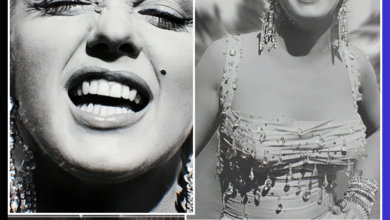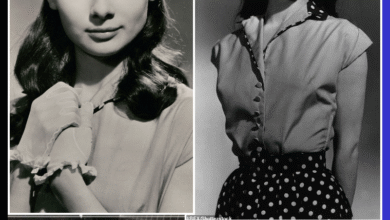The Jim Carrey Movie He Wishes Never Existed: Why He Wants to Erase ‘Kick-Ass 2’ from History
OPINION: This article may contain commentary which reflects the author's opinion.
Jim Carrey, known for his boundary-pushing performances in comedies like Ace Ventura: Pet Detective (1994), The Mask (1994), and Dumb and Dumber (1994), as well as his more dramatic turns in The Truman Show (1998) and Eternal Sunshine of the Spotless Mind (2004), has long been regarded as one of Hollywood’s most versatile and successful actors. With a career spanning over four decades and box office earnings exceeding $2.5 billion in North America alone, Carrey has solidified his place as one of the top-50 highest-grossing actors of all time. However, despite his many triumphs, Carrey has expressed deep regret over one particular film—Kick-Ass 2 (2013), a movie he has publicly wished he could “delete” from history.
Identification of the Film: Kick-Ass 2 (2013)
Carrey’s regret centers on his role in Kick-Ass 2, the action-comedy sequel to the 2010 film Kick-Ass. In the movie, Carrey plays Colonel Stars and Stripes, a vigilante who wields a baseball bat to fight crime. While the film received mixed reviews and failed to achieve the commercial success of its predecessor, Carrey’s performance was noted for its intensity. Yet, Carrey’s regret was not based on the film’s reception or its box office performance. Instead, it stems from a much deeper moral and emotional shift following a devastating real-world event.
The Sandy Hook Tragedy and Its Impact on Carrey’s Regret
Carrey’s regret over Kick-Ass 2 was profoundly influenced by the tragic events of the Sandy Hook Elementary School shooting on December 14, 2012, in Newtown, Connecticut. In the aftermath of the shooting, in which 26 people were killed, including 20 children, Carrey found himself reevaluating his stance on violence in entertainment. Just months before the film’s release in August 2013, Carrey made a public post on X (formerly Twitter) expressing his discomfort with the violence in Kick-Ass 2, writing, “I did Kick-Ass a month before Sandy Hook, and now, in all good conscience, I cannot support that level of violence.” He publicly apologized to the cast and crew involved with the film, signaling a shift in his personal and professional values.
The emotional weight of the Sandy Hook tragedy led Carrey to make a firm stand against violent content in his work. This regret was not just an isolated incident but part of a broader transformation in his career and personal life. His statement resonated with a growing moral and ethical stance, as he increasingly spoke out against violence in films and sought to distance himself from projects that glorified it.
A Broader Shift in Carrey’s Career
Carrey’s regret over Kick-Ass 2 signaled a major turning point in his career. Following the film, he publicly pledged not to participate in violent projects, a decision that was reflected in his later work and public persona. In his 2017 documentary Jim & Andy: The Great Beyond, Carrey delves into his method acting for Man on the Moon (1999) and reflects on the psychological toll that taking on such intense roles had on him. This introspective period marked a shift away from his previous, more commercial roles toward a focus on personal growth, activism, and the exploration of deeper themes in his work.
This shift also aligned with Carrey’s increasing activism, particularly in relation to gun violence and its depiction in entertainment. In subsequent years, Carrey became vocal about his desire to see more responsible portrayals of violence in films, urging Hollywood to reconsider the glorification of excessive brutality in the wake of real-world tragedies.
The Impact on Carrey’s Legacy
Although Kick-Ass 2 was far from the most successful film of Carrey’s career, his public regret over the project has added complexity to his legacy. While the movie itself may not have been a defining moment for Carrey, his reaction to it has certainly influenced the way he is perceived as both an actor and a public figure. His decision to distance himself from violent roles has only deepened his connection with fans who admire his willingness to evolve and take responsibility for his artistic choices.
In the years since, Carrey has become a vocal advocate for gun control, using his platform to call for stricter regulations in the wake of mass shootings like Sandy Hook. His regret over Kick-Ass 2 thus became part of a broader moral stance against violence, both in Hollywood and society at large.
Conclusion: A Legacy of Regret and Redemption
Jim Carrey’s regret over Kick-Ass 2 is more than just a moment of career reflection; it is a powerful statement about personal growth, responsibility, and the impact of real-world events on art. While Kick-Ass 2 may not be a defining film in Carrey’s extensive filmography, the way it shaped his career trajectory speaks volumes about his commitment to aligning his professional choices with his evolving personal beliefs. Carrey’s decision to distance himself from violent films has ultimately become a key chapter in his legacy—one that reflects both regret and redemption, and a testament to his capacity for change in both his craft and his life.



